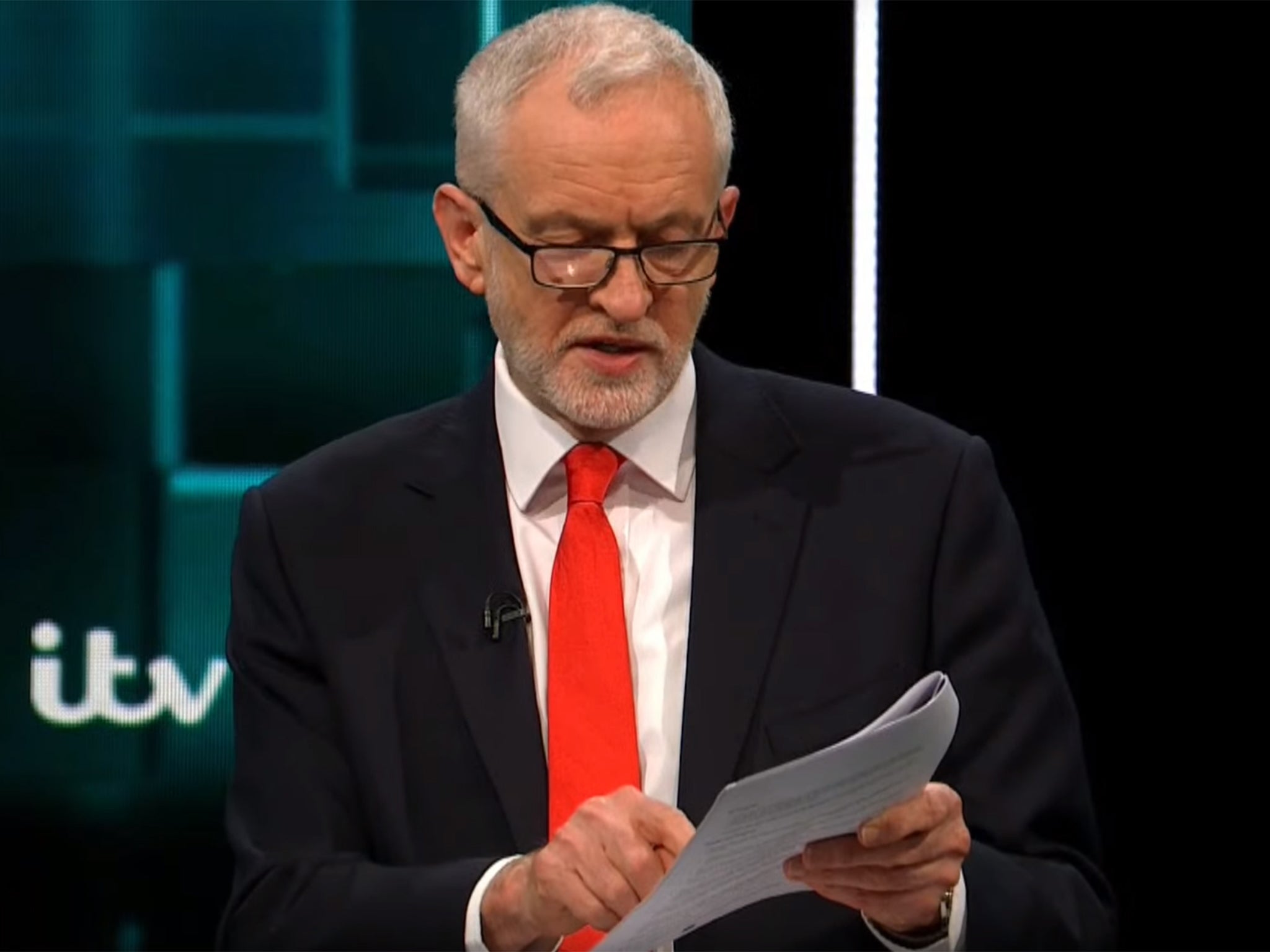Politics Explained: What was that document that Jeremy Corbyn brandished in the TV debate?
Does Boris Johnson really want to ‘sell our NHS to the United States and big pharma’?, writes John Rentoul


The Labour leader waved some pieces of paper in the ITV debate, with “every single line redacted out”, and said to Boris Johnson: “You’re going to sell out our NHS to the United States and big pharma.”
The viewer could see that every line was indeed blacked out. But Jeremy Corbyn had no time to explain what the documents were. So are they evidence of a secret plot by the government to give parts of the health service to Donald Trump’s friends, or was the prime minister justified in his furious insistence that the NHS is not and never would be for sale?
The documents were obtained by Global Justice Now, the pressure group formerly known as the World Development Movement, under the Freedom of Information Act. They are accounts of six meetings between UK and US officials to discuss a possible post-Brexit trade deal.
The Labour Party claims that the meetings are evidence that the government is prepared to allow US drugs companies to charge the NHS higher prices as part of a US-UK trade deal. Corbyn raised these allegations in the last Prime Minister’s Questions before parliament dissolved for the election, and obviously thinks he has Johnson on the defensive.
There is no actual evidence that the NHS would be affected by a US-UK trade deal, but the government’s secrecy does make it hard for the prime minister to shake off suspicions. The Department for International Trade refused to publish the documents initially, and when Global Justice Now appealed, it published them with almost all the information blacked out.
The reason for the redactions is that the documents set out the views of representatives of a foreign government, which the UK government is not at liberty to disclose. So we cannot know how much of the discussion, which would have covered all trade, was about drug pricing. The problem is that drug prices are a complex subject and there have been doubts about whether the NHS, as a huge customer for drugs, makes the most use of its leverage to get the best prices. However, the prime minister did point out in the House of Commons that the NHS had just done a deal with the US makers of Orkambi, the cystic fibrosis drug, to obtain it “at a cost that is reasonable to the taxpayers of this country”.
Corbyn’s bigger problem is that the “NHS for sale” conspiracy theory is fundamentally unconvincing. Some Conservative politicians may not like it much, but they are pragmatic enough to recognise that the NHS is untouchable by any government that wants to have a chance of winning re-election. Johnson may want a US-UK trade deal very badly after Brexit, to try to show that the whole thing has been worthwhile, but he knows that burdening the NHS with a vastly increased drugs bill would be a very bad deal indeed.
Join our commenting forum
Join thought-provoking conversations, follow other Independent readers and see their replies
Comments